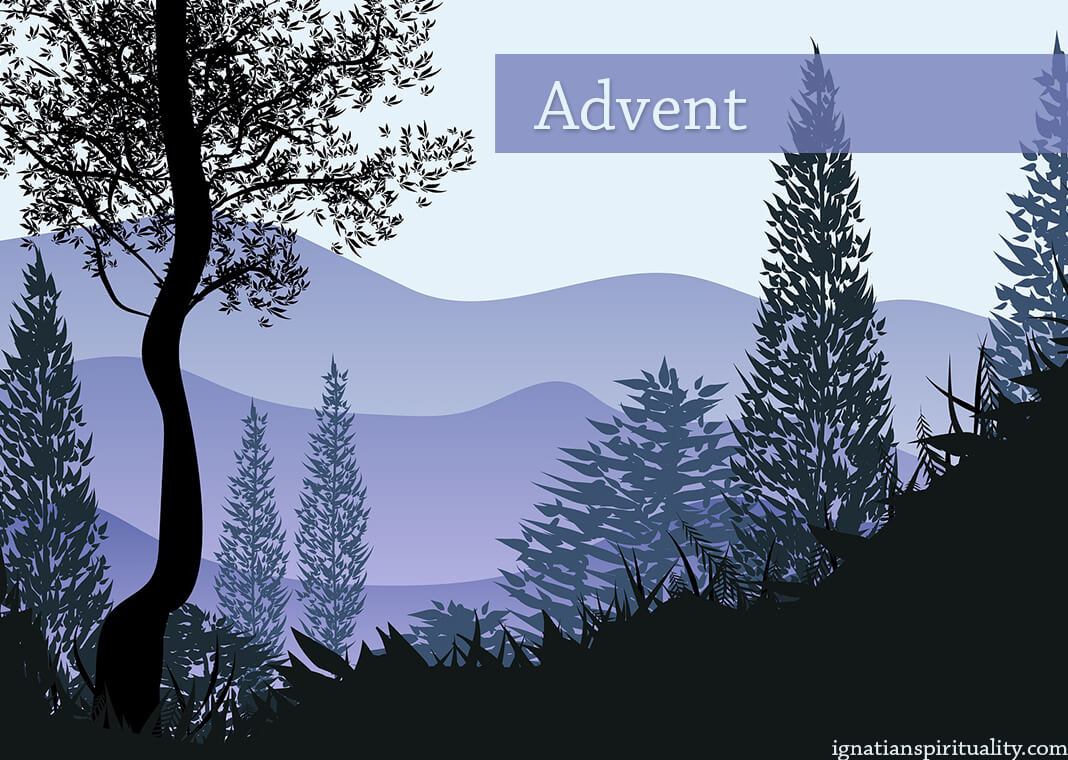
When my children were younger, we would go on long road trips during the winter holiday from school to visit our families. We’d eagerly pack up our bags, make sure there were plenty of snacks for the little ones, and get onto the road. Our children, like so many, would ask, “Are we there yet?” or “How much longer?” Children are impatient, because it is hard to wait for the unseen. As adults we had a bit more patience. My husband and I would also be eager to see family and to arrive at our childhood homes, and because we were used to the long trip ending with the reward of loved ones, we felt more anticipation than impatience. Road trips are full of anticipation and hope for what lies ahead.
The word Advent comes from the Latin adventus, or arrival. Advent is a season of preparation for Christmas when we remember the birth of Jesus and the Incarnation. It’s also a time of preparation for the second coming of Christ in the future. When we await something or someone, we are in an “in between” place. We are “not there yet.” St. Ignatius considered life to be “on the way,” an image of life as a pilgrimage. Ignatius was physically a pilgrim for a time, traveling through Spain to Jerusalem and later Rome, but even when this period ended, he understood that we are still always on the way in our life’s journey—spiritually, ethically, and as a community seeking justice in the world. Our world has not arrived at perfect peace and justice. We as individuals and communities are still en route to living in the world that reflects the Reign of God.
Sometimes we adults also can wonder, “Are we there yet?” We read the news, and we can be like children who impatiently wonder, When will we ever get there? Can we really believe in a world where peace and love reign? But to hope for such a world is to anticipate that there really is something good at the end of the journey. For us as Christians, it is Jesus himself who is the gift. God became incarnate as a person, to be with us, in the past. God remains present in the world around us and present to us in prayer and contemplation. And God is in the future; we believe that God will fulfill God’s promise of love and justice and come again.
Anticipation
Anticipation works in a funny way: to be able to look forward with hope, we also have to look backwards in time through memory. Here’s what I mean: children look forward to unwrapping gifts under the tree because they have happy memories of past years when they unwrapped something good, like a much-anticipated toy. When I was five or six years old, my parents brought out a last gift after all the others had been unwrapped: a huge, soft, plush dog about three feet long, that I named Cuddles. Cuddles sat on my bed for a long time, and even when I was an adolescent, had a special spot in my room. Probably no other material gift topped Cuddles, but the memory informed how I thought about Christmas morning as a child. It was a time full of familial love and good surprises.
As Christians, we also look forward to the future of love and peace by looking back to the birth of Jesus. We look forward to Christ’s coming again by looking to Jesus’s arrival among us long ago. It is trust in God’s gifts to us in the past that allows us to trust and to hope in a future where God brings peace and love into our world.
Remembering Where God Has Been So That We Can Anticipate Where God Will Be
Reading and imaginatively praying with Scripture is one way to remember Jesus’s coming into the world in the past, so that we can hope and trust that God will be with us wherever we need God to be in the future. For example, we can imagine the Annunciation and consider what it means to trust in God right now, the way that Mary trusted and gave of herself generously. Mary had an encounter with the angel that allowed her to have hope and to anticipate something good, even though Mary also had no idea exactly how that story would unfold. Still, she trusted and anticipated, pondering in her heart.
A gift of imaginative prayer is that it helps us to see the connections between where God has been in the past and where God will be in the future. We anticipate, we hope, and we try to make a gift of ourselves to God and to others—for they are also “on the way” along with us.
Image by S. Moonthep from Pixabay.

Good one
Nice. Thanks Marina. Maranatha – O Come Lord.
Lovely, much
Incentive to pray with imagination.